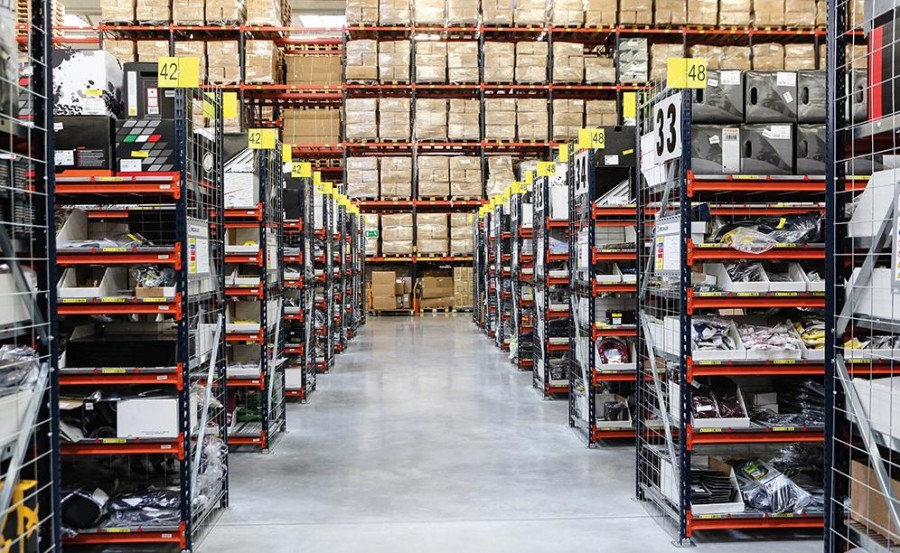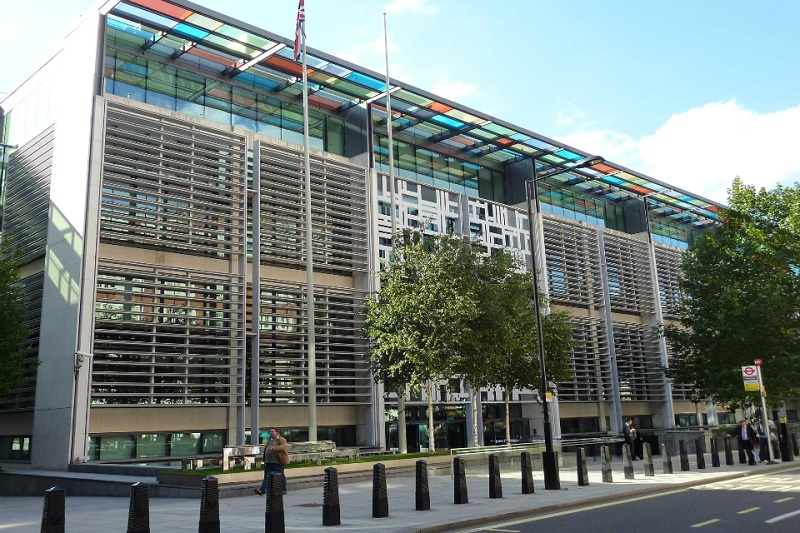September saw the downturn in UK manufacturing output extend to three months, as companies cutback production in response to declining new order intakes.
There was less positive news on the price front as well, with rates of inflation for input costs and output charges both accelerating.
The seasonally adjusted S&P Global / CIPS UK Manufacturing Purchasing Managers’ Index (PMI) posted 48.4 in September, up from 47.3 in August but below the flash estimate of 48.5. Although the rate of contraction in output eased slightly since August, it nonetheless remained substantial overall.
Contractions were registered across the consumer, intermediate and investment goods industries. The steepest decline was at intermediate goods producers, which was also the only sub-sector to see its rate of contraction accelerate. Manufacturers linked lower production to a reduction in new work intakes.

The level of new business declined for the fourth month running, albeit to a slightly weaker extent than in August. Companies faced tougher conditions in both domestic and export markets. There were also reports of expected orders being postponed, or cancelled, due to factors such as rising uncertainty, inflationary pressure and the cost-of-living crisis. September saw new export business contract at the quickest pace since May 2020, with reports of lower demand from the US, the EU and China.
Manufacturers faced weak global market conditions, rising uncertainty, high transportation costs reducing competitiveness and longer lead times leading to cancelled orders. Manufacturers maintained a positive outlook overall during September.
Over 49% forecast that their output would be higher one year from now, as planned investments, new product launches and hopes for a calmer economic backdrop are expected to lead to an influx of new contracts. However, the degree of positive sentiment remained subdued overall, amid concerns about market uncertainty, high inflation, the cost of living crisis and the increasing risk of economic recession in both the domestic and global economies.
September saw a further increase in manufacturing employment, as companies reported success in filling existing vacancies. Others noted that capacity had been raised to continue progress towards reducing backlogs of work. Outstanding business fell for the fifth straight month. Price indices tracking input costs and output charges both strengthened in September, halting the recent slower inflationary trend at manufacturers.
Moreover, rates of increase in both measures remained elevated and well above their respective survey averages. Higher input costs were generally attributed to raw material shortages, sustained global commodity price inflation, cost pressures at suppliers, rising energy and transportation costs and exchange rate factors.
A wide range of inputs were reported as being up in price, including chemicals, electronics, food stuffs, metals, packaging, plastics and timber. Output charge increases were mainly the result of the pass through of high costs to clients. After easing through much of the past year, the rate of lengthening in average vendor lead times increased for the first time in five months in September.
Longer delivery times reflected raw material shortages, transport delays, insufficient capacity at vendors, disruption at ports and Brexit-related paperwork issues. Purchasing activity was cut back sharply again. However, stocks of both purchases and finished goods rose, mainly due to the recent slump in output and new order volumes.
Rob Dobson, Director at S&P Global Market Intelligence, said: “The downturn in UK manufacturing continued at the end of the third quarter, meaning the goods producing sector looks set to have acted as a drag on GDP. Manufacturers have once again cut back production as new order intakes declined for the fourth successive month. Factories are reporting tough market conditions both at home and abroad. Disappointingly, exports continue to fall despite the more competitive exchange rate.
"There was also less positive news on the price front, with rates of inflation in input costs and selling prices both picking up in September, linked in part to import costs rising due to the weaker pound.
“With existing headwinds from the cost-of-living crisis likely to be exacerbated by the current volatility in financial markets, growing economic uncertainty and further increases in borrowing rates, the industrial sector is likely to remain in the doldrums during the coming quarter to add to deepening recession risks."
Dr John Glen, Chief Economist at the Chartered Institute of Procurement & Supply, said: “Manufacturing businesses continued to feel an autumnal chill in September as declining sales, higher costs and a depressed marketplace pulled the sector down into contraction for a third month in a row.
“Supply chain managers were buying less as customers either failed to place orders or cancelled work in hand. This slowdown was across the board as both domestic and export orders fell, impacted by concerns over transportation difficulties, disruptions in Felixstowe and longer lead times. A shortage of components particularly made the completion of finished goods more difficult.
“It is tough to predict with any certainty that there could be potential improvement in manufacturing production in the last quarter. It is unlikely that supply chain managers will have hedged against the weaknesses in the pound for instance which will continue to impact on imports and what consumers will see on shelves as the shopping season begins in the coming months.”




















